|
All book reviews posted on the Selfishgenie Publishing blog page are the opinions of the reviewers, not those of the Selfishgenie management. Help! My Tech Is Killing Me 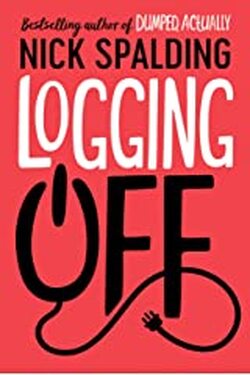 I am something of a fan of Nick Spalding’s books. They are easy to read and easy to put down if you have to do something else. I don’t think that anyone will ever accuse Nick of writing great literature, but that doesn’t mean that his books aren’t enjoyable. In fact, it’s because they are enjoyable that I read them. Nick Spalding uses everyday life as his inspiration. His plots are centred on things that the reader can relate to and may have experienced. Not all of them, of course. I’ve never renovated a ramshackle old farmhouse, which was the subject of “Bricking It”, but that didn’t stop me from enjoying it. “Logging Off” takes a look at the way some people use the internet, to the point where it becomes detrimental to their health and mental wellbeing.  Andy Bellows is a graphic designer who is somewhat internet obsessed. He has an app for everything, including going to the toilet. I don’t know if such an app exists, perhaps someone might like to tell me if it does. Not that I would ever use it. Anyway, Andy’s obsession with his apps is causing him physical ill health and some of his physical symptoms are evidence of his poor mental health, induced by his internet behaviour. On the advice of his doctor, Andy decides to undergo a “digital detox”, which requires him to give up all internet usage except for that essential to his work: no social media, no on-line shopping, no recording of his sleep patterns or his bowel movements and definitely no Googling of his medical symptoms. He can’t even use his apps to check the TV schedules.  He packs his iPad, his games console and his phone into a box and hides it away. Why he should give up his phone I found a bit puzzling. A phone is an essential tool and all Andy really had to do in order to conduct his detox was uninstall his apps. But at the same time, not having a phone becomes a plot point later on in the book, so even if it wasn’t necessary from a practical point of view, it was for the narrative. Andy’s best (and possibly only) friend Fergus, a local newspaper editor, decides that what Andy needs to do to make sure he sticks with his detox, is to announce it to the world – in Fergus’s newspaper, of course. This sets the scene for a lot of anxiety for Andy later on, but I don’t want to give away too much, so I won’t tell you how. But I can tell you that because of the newspaper article, for the first time in living memory Andy makes contact with a woman (two women actually) with romance in mind without the aid of digital match making. The outcome of at least one of those meetings is entirely predictable, so that isn’t a spoiler. The other is a little bit more bizarre, but I’ll let you find out how for yourself. Being a Nick Spalding book there are misadventures aplenty, many of which Andy blames on his lack of technology but which I would blame on Andy himself, but I won’t go into those. But I’ll never look at a duck the same way again. 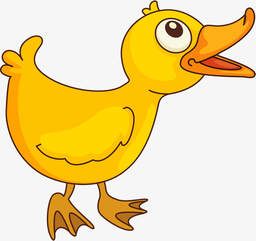 The book is evenly paced with regular highs and lows. It is amusing rather than funny but, like many of Nick Spalding’s books, it left me thinking about the content and what it might mean for me. Is that stiff neck I suffer due to the amount of time I spend ‘on-line’ each day? Maybe it is. Maybe I need to think about doing a digital detox. Or maybe it’s just the power of suggestion. Why only 4 stars? Really its because it isn’t absolutely the best book I’ve read so far this year. It isn’t even the best Nick Spalding book I’ve read this year. But it is enjoyable and I do recommend it. If you manage to get a holiday this year, it is the ideal fare for reading beside the swimming pool. I would recommend reading it on your phone or iPad, just so you can enjoy the irony. To find out more about “Logging Off” by Nick Spalding, just click the cover image at the top of the page. If you want to read more book reviews like this, just click the button below to sign up to receive the Selfishgenie Publishing newsletter. We promise not to bombard you with spam.
0 Comments
 Science fiction and fantasy – are they really the same thing, but just with a bit of a twist? Let’s take a look at the differences – and the similarities. Both of them often feature worlds that don’t exist in reality, at least, not so far as we know. Both of them usually feature “magic”. In sci-fi they call this magic “technology”, but if it doesn’t actually exist then it might as well be magic. Both of them use strange creatures as part of the plot. In fantasy those creatures are elves, orcs etc and in sci-fi they’re alien beings or mutated viruses, but they are both the result of imagination, not reality.  If you read our submission guidelines you will find that we don’t encourage authors to submit fantasy novels, but we’re happy enough with sci-fi. Given what we have said above, why would we not accept both – or neither? The author of this blog has read Lord Of The Rings (LOTR) three times and The Hobbit twice, so why does he have a downer on other works in the fantasy genre? It’s because so many authors of the fantasy genre write in clichés, or they are lazy.  Let’s take the clichés first. Orcs, elves, wizards, dragons, magic rings or swords. Does any of that sound familiar? About the only thing that’s original in so many fantasy novels are the names that are given to the main characters and, I have to say, even those have a very familiar ring to them most of the time. So, what about that accusation of laziness? Most of it is to do with the way magic is used in the books. Is the hero stuck at the bottom of a deep pit? Magic him out of it. Is the hero just about to be barbequed by a dragon? Magic him out of there. In fact, any peril that the hero finds him/herself in is fixed by the use of magic. And if it isn't magic, it's other special powers such as being able to see events far away or see into the future.  And that removes the drama. Once you know the author is going to save the hero’s life every time, using magic, there’s nothing to worry about. All tension is removed and the story becomes about as exciting as watching paint dry. The lazy author, therefore uses magic rather than trying to imagine some other way of allowing their hero to survive – or going back to re-write the plot in a way that no longer relies on magic to get the hero out of their fix. Ah, but LOTR uses magic. Gandalf’s a wizard and he uses magic a lot. And as for that ring – it’s total magic. Therefore, Selfishgenie Publishing, your argument is defeated.  Yes, but think about how magic is used in LOTR. First of all, it is used very sparingly. If the problem can be solved using swords or guile, then swords or guile are used. Magic is always the weapon of last resort. But, more importantly, whenever magic is used, there is a price to pay. When Gandalf uses magic to fight the Balrog, it so exhausts him that he disappears from the book for a couple of hundred pages. When the ring is used to provide invisibility, not only does it place a great burden on the wearer, but it affects their personality. That is made very clear in The Hobbit, where we encounter its long-term user Gollum and at the start of LOTR with the way Bilbo reacts to having to give up the ring. 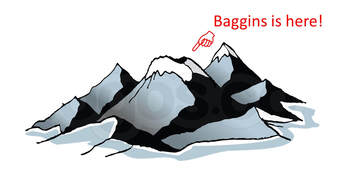 The ring also points a big fat finger at the wearer so that the Dark Lord can locate them. So, the ring and its powers have to be used sparingly. It is Frodo’s and Sam’s perseverance that gets them to Mount Doom in the end, not magic. It is about Frodo’s personal qualities, about why he was chosen for the task in the first place because, despite all temptations, he is the only one of the Fellowship of the Ring that can be trusted not to try to keep it for himself. Of course, there are fantasy writers out there who avoid both the clichés and the over-use of magic and rely on their characters to carry the plot, but we have to say that bitter experience has shown that they aren’t the authors who are submitting to Selfishgenie Publishing. You can try to prove us wrong, if you want, but excuse us while we roll our eyes.  So, what of sci-fi, surely it is just as full of cliches, yet we publish that. Substitute magic for non-existent tech and you have the same sorts of problems. Of course we do, guilty on both counts. Which is why we have just as much of a problem with poor sci-fi as we do with poor fantasy. However, some of the sci-fi authors we publish have actually tried to base their “magic” on basic scientific principles.  Reputable scientists have theorised about the sort of technology that is used in their books and suggested that it might be possible to create that sort of technology sometime in the future. No less figures than Einstein, Steven Hawking, Erwin Schrodinger and others have speculated on what sort of advances in science might be made to allow the use of new technology in the future. Not only have they speculated, but serious research is now going on into some areas of science that were previously labelled “fictional”. OK, some of it may never produce any worthwhile results, but the research isn’t being done on a whim. There are some basic scientific principles underpinning it.  And, of course, after the last 18 months, when it comes to killer mutant viruses we need say no more. And if you can have mutant viruses, you can surely also have mutant people. Now, please don’t get us wrong. We think that fantasy is a legitimate genre for any author to write in. The best fantasy sits alongside the best works of all the other genres. But, unfortunately, the sorts of authors who submit fantasy to us seem to lack the imagination to come up with anything original. And it is originality that sells books. Now, having read this far you may now be saying "That's just your opinion", and you will be right. But if you had to read the amount of cliched fantasy that we receive, you might share our opinion. If you have enjoyed this blog and want to make sure you don't miss future editions, plase sign up for our newsletter by clicking the button below.  Have you submitted your book to agents or publishers and had it rejected? Have you ever asked yourself why your masterpiece was rejected? After all, you have read far worse books than yours, so why wasn’t your much better book accepted? Have you ever thought that it might be because you didn’t adhere to the submission guidelines? As publishers we receive a lot of submissions and one of the things that puzzles us the most is how someone who can write a 100,000 word novel can’t read a simple set of instructions.  You may wonder why adhering to the submission guidelines is so important. After all, it has nothing to do with the quality of your work. Your masterpiece will still be a masterpiece, even if you didn’t double space it, as the submission guidelines asked you to. We’ll answer that in this blog. Our submission guidelines are published on our “Contacts” page of this website. They are longer than they are for some agents or publishers. That’s because we’re trying to be helpful, so we tell authors in advance why we might not accept their masterpiece. That gives them the opportunity to take a look at what they have written and decide what sort of a chance they have of being accepted if they submit their work to us. We may not actually be the right publisher for them, so why waste everyone’s time?  But even if we are the right publisher, are they the right author? We have no way of knowing without setting them a little examination – but here’s the trick – we also provide the answers to the exam questions. And that makes it much harder for authors to fail. So why do so many authors send us into apoplectic fits of rage by not reading the answers? OK, I’m exaggerating for comic effect, but it is very frustrating when you open a submission and find, not the 10,000 words that were asked for in the guidelines, but the whole (expletive deleted) manuscript. And it's double line spaced when we asked for something else. I have actually emailed an author and asked him why he didn’t read our guidelines. He replied to say that he did read them. So I then asked him why, having read the guidelines, he had decided to ignore them. He replied that he didn’t think we were serious and they were just to discourage authors from making submissions. Yes, that’s right, we spend hours making things up just so we don’t have to read submissions. That’s how we stay in business, by not having any new material to publish. (sarcasm).  I didn’t use the word “examination” above by accident, by the way. So why did I use it? When you submit a book to an agent or publisher, it ceases to be “your book”. The act of submission turns your work into a collaborative project. Your name will still be the one on the cover of the book, but it won’t get to the bookshops without a lot of teamwork between you and the publisher. So, when you submit the book, the agent or publisher wants to know if you are the sort of person with whom it is going to be easy to collaborate. Trust us on this, but no author ever submits a book that is ready to go straight to press. They all require some degree of work to turn them from what they are into something that the readers will want to buy. The only difference between submissions by different authors is the amount of work needed to get from A to B.  The greatest authors ever to put words onto paper have gone through this process before you, so don’t think you are some sort of special case or genius who can go straight from submission to publication without stopping to do a few re-writes along the way. That’s where the publisher has to start spending money – without knowing if they will ever get any of it back. A publisher will pay an editor to work with you to make your book the best it can be, and that editor will earn between £20k and £40k per year. Freelance editors start at around £25 per hour, charging up to £54 per hour if more specialist services are needed. (comparable rates apply in other countries). That may well be more money than you, the author, will receive in royalties. So, the publisher (and the agent who will try to find you a publisher) wants to know if you are going to work with that editor, or work against them. Is it worth them spending £5k to £10k of an editor’s wages working on your book with you if you are going to ignore everything the editor suggests? "If you can’t be bothered to read the submission guidelines, are you really going to read the editor’s notes?"  Someone, I don’t know who, once said “You only get one chance to make a first impression.” Your submission is your only chance to make that first impression. What the agent or publisher sees when they open up your manuscript is when that first impression is made. If it is the right length and formatted the way the agent or publisher has requested it, they are going to start to think of the author in a positive way. If they asked for a synopsis but you didn’t provide one, then you probably didn’t read the guidelines, or you decided they didn’t apply to you. If they asked for a biography but you didn’t include one, they will wonder why you didn’t. If you haven’t done those things, the negative thoughts will start, which means the author’s work has to be so much better than the average before the agent or publisher starts to move across to having more positive thoughts.  So, we have devised an additional test for our authors. We don’t insist that authors use our formatting guidelines, we just suggest that if they want to impress us, they should use them (item 6 if you decide to read them for yourself). If the author responds to our suggestions, they get off to a good start with us. If they just submit the MS formatted the way they wrote it, then the start isn’t going to be such a good one. So, for your own good, if you are going to submit your work to an agent or publisher, please read and follow the submission guidelines because first impressions count for so much. After that, your writing talent will do the talking for you. Don’t get me wrong. The agent or publisher won’t make a final decision based on whether you have used the right line spacing or the right font. If the story is good enough it could be written on a brown paper bag with a blunt crayon and it will still be accepted. But if you want the agent or publisher to be on your side from the moment they receive your submission, you have to do what is necessary to get them there, by following the submission guidelines. And if you think following submission guidelines is for losers – good luck with your career in pizza deliveries. If you have enjoyed this blog, or found it informative and you don't want to miss future editions, just click the button to sign up for our newsletter. Don't Despair; Help Is At hand Just a note for all our readers around the world, although this blog is aimed primarily at our British audience (we’re a British business), the key messages in it are just as valid wherever you live, so please, continue to read as it will be of benefit if you have lost your job or are in danger of losing your job. Let’s face it, it’s been a rough 15 months and we’re still not out of the woods. And for a few people, things are going to be a lot tougher for a while. In 2019 the UK unemployment rate was around 3.8%. The current economic forecast is that it will rise to around 5.5% this year before starting to fall back again as the economy starts to grow once more. In 2019, about 32.41 million people were in employment, so a reduction of about 2% means that some 640,000 people have become unemployed already or will become unemployed this year. If you are one of them, you have my sympathy. I’ve been there and I know how that feels.  And if you are leaving school or graduating from university this year, that will also mean more competition for what work vacancies there are. So, this blog is aimed at you too. A lot of businesses have gone bust, throwing people out of work. As the country starts to return to “normal”, whatever that means, the present furlough scheme will end and more businesses will shed the staff that have been protected against losing their jobs up until now. So, if you are one of those 640,000 people who have already lost their jobs or are in danger of losing their jobs, or a student about to enter the jobs market, reading this blog could be the most important thing you read this year. "losing your job isn’t your fault" The first thing you must tell yourself – every day if need be – is that losing your job isn’t your fault. You have done nothing for which you should blame yourself. You may be surprised to find out that many people do blame themselves and it always hold them back. (If you have been sacked for misconduct then it may be your fault, but that is a different issue and will require different solutions) 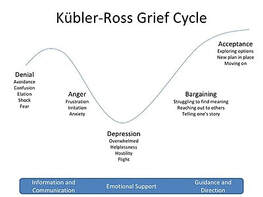 The next thing you should try to do is get over the loss of your job. You will experience all the feelings associated with losing a loved one, known as the grief cycle. Try to get through this as quickly as possible because if you don’t, it will hold you back in your search for a new job. It is quite normal to feel this, so don’t worry about it. To use a couple of well-worn cliches, you have to get past this and you have to move on.  The next cab off the rank is to understand that looking for a new job is a full time job in itself. If you aren’t spending the majority of your waking hours looking for work, you aren’t going to find it. Trust me, no one is going to come knocking at your door to offer you a job while you’re watching Phil and Holly on daytime TV. The job you want is out there somewhere, but you have to go out and find it, because it ain’t coming to find you. The next thing you must do is acknowledge that all jobs are temporary. Yes, you may have thought your job was permanent, but now you have been proven wrong. You knew this already but probably didn’t know that you knew it or you didn’t want to acknowledge it. "a job isn't for life"  You knew it because, wherever you worked, people came and people went. How many leaving presents have you been asked to contribute to in your working life? And I don’t mean for people who were retiring. A job isn’t for life. A job is for as long as you want to do it or until something better comes along – or until the company no longer needs you or can no longer afford you. So, if all jobs are temporary, then don’t sit around waiting for the perfect job to come along. It is a luxury you can’t afford right now. Instead take a temporary, if imperfect, job and keep looking for the perfect one. It’s better to earn some money than to earn no money. Believe me, living on state benefits will never cover all your costs. There is another reason for taking a temporary job while you continue looking. Employers don’t like to see gaps in your CV (or resumé, for some of our readers) while you were doing nothing.  It’s hard to convince a prospective employer that you are highly motivated and a ‘self-starter’ if you aren’t willing to flip burgers or deliver pizzas while you are waiting for him or her to offer you your dream job. Yes, I know that you worked hard for many years to gain the qualifications and skills that you now have, so you wouldn't have to flip burgers or deliver pizzas. But that is your pride talking. Pride isn’t going to pay the bills and pride will leave a nasty gap in your CV which you WILL be asked about at interviews. "It demonstrates to a prospective employer that you are willing to develop yourself." You need to prove your willingness to work by taking jobs that you wouldn’t normally consider. It’s about painting a picture to go with the story you want to tell at your interviews. If you really can’t consider doing a job that means taking a cut in salary or working unsociable hours or whatever your reason, then learn some new skills instead.  Firstly, it provides an explanation for what you were doing while you were unemployed but, more importantly, it demonstrates to a prospective employer that you are willing to develop yourself. That is a highly prized asset in today’s workplace. And it doesn’t have to cost you anything. There is an organisation called Future Learn who provide free on-line courses on a wide range of subjects and they can be accessed from anywhere in the world. Their content is also provided by some blue-chip global educational bodies. Most are suitable for non-graduates, so don’t be put off if you didn’t go to college. If you want a certificate to say you completed a course, you may have to pay, but some of the courses do provide them for free. Other training providers are available, but Future Learn is the best we have come across. Most of the courses can be completed in a day if you want to binge, but you can work at your own pace and at times that suit you eg when Phil and Holly are on TV. Learning a new skill is far more beneficial than having your brain turned to mush by daytime telly.  Stand out from the crowd with better skills Stand out from the crowd with better skills Hot topics at the moment are: collaborative and team working skills; leadership capabilities; business skills (always a good area for technical personnel to develop new skills); psychology (especially in relation to leadership), IT skills, creativity and innovation. Getting a few of those subjects under your belt will enhance your employability, especially if you can describe to prospective employers how you can use those new skills to help their business. But you are not alone in this job search. Help is available, which is why we are posting this blog.  One of our authors is something of an expert in this area and wrote a book on the subject. Yes, we admit it, this whole blog is nothing more than a thinly disguised book plug. But we really do want to help. The advice Robert Cubitt offers in “I Want That Job!” really does work. We know it works because we know people who have read the book and who now have new jobs. Above all it is practical, not theoretical. Just click the cover image to find out more. Now, if you have enjoyed this blog or found it helpful, be sure not to miss an edition by signing up for our newsletter. Just click the button. |
AuthorThis blog is compiled and curated by the Selfishgenie publishing team. Archives
June 2025
|
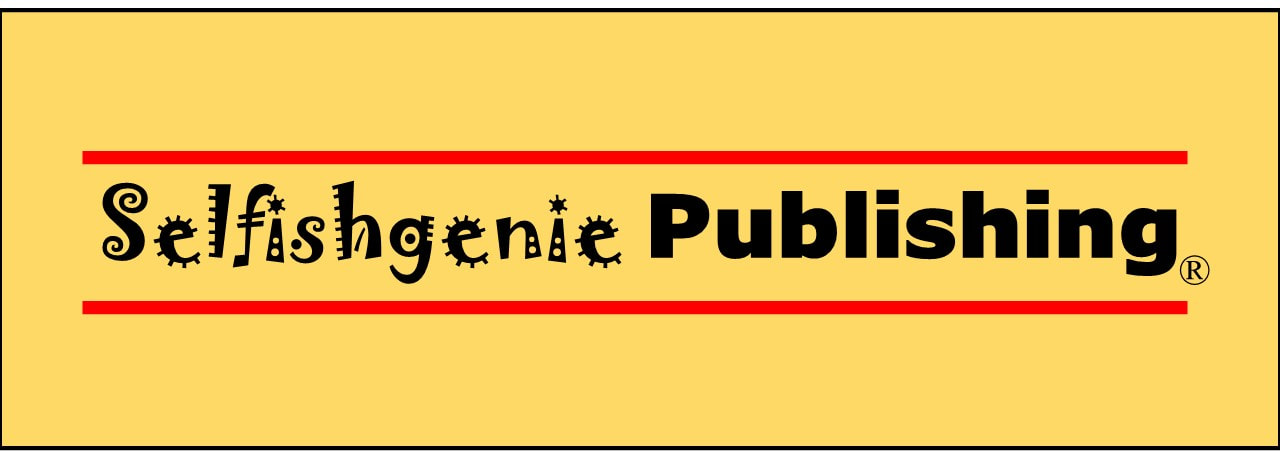

 RSS Feed
RSS Feed